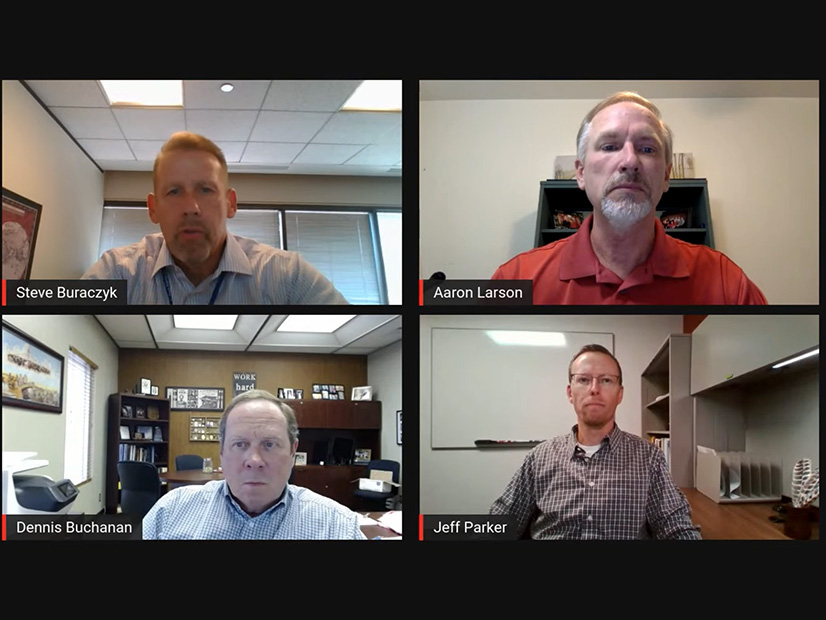
The winter storms that led to mass outages in Texas and the Midwest have spurred interest across the nation in ensuring the power grid is prepared for future extreme temperature events. However, representatives from Texas’ electric utilities warned in a webinar on Thursday that they are not sure this energy can be sustained long enough to ensure the needed investments are actually made.
“For us, I think the challenge is convincing … our regulators [and] politicians that this money needs to be spent, because what happens is people [only] remember the last few years,” said Steven Buraczyk, senior vice president of operations at El Paso Electric. “If you talk to [people] in El Paso, they may not remember a whole lot about [the 2011 cold weather event]. They remember it because it was really cold, but they don’t remember the impact and what happened to our community.”
Speakers at Thursday’s webinar, which was sponsored by POWER Magazine, frequently referred to the events of 2011 — which led to 4,000 MW of controlled load shed at one point, affecting 3.2 million customers — both because of their similarity to February’s cold snap and the lessons they taught about preparing for sudden extreme cold weather.
Questions About 2011’s Lessons
In a congressional hearing in March, Sen. Mazie Hirono (D-Hawaii) told NERC CEO Jim Robb that Texas utilities “probably didn’t follow your recommendations very well,” referring to the cold weather preparedness guideline issued by FERC and NERC after the 2011 event. (See Senators Grill Robb, Asthana over Texas Outages.)
The webinar participants acknowledged that this is a reasonable comment given the widespread generation failures in February, when Texas’ grid came within “seconds and minutes” of total collapse, according to operators. (See ERCOT: Grid was ‘Seconds and Minutes’ from Total Collapse.) While they claimed that their utilities had, in fact, instituted significant changes, including regular inspections and efforts to weatherize key components, they also noted that after 10 years without a major cold weather event, some complacency is inevitable.
“If we were here in person, I would ask for a show of hands of how many people have pristine insulation at their plants,” said Jeff Parker, engineering manager at Salt River Project. “[If] they’ve never had an operator step on insulation, or [have it] mashed from someone rigging or climbing to access something. That happens; that’s real. And we saw that when it’s mashed down or it’s just peeled off by the wind, that you get some exposure.”
Additional Insights from February Freeze
Dennis Buchanan, plant director at Xcel Energy (NASDAQ:XEL), pointed out that unlike other areas of the country, Texas still lacks experience with regular, long-term cold temperature exposure. This resulted in many oversights revealed during the February freeze that may seem relatively obvious to grid operators from other regions but took their counterparts in Texas by surprise.
“We had some combustion turbines running; [it] shouldn’t be any problem, except for the cooling power mist from an adjacent unit was blowing just in the right direction to ice up the inlets to those [turbines],” Buchanan said. “So it’s not just a matter of looking at a single unit and its capabilities, but what are the things around you that can affect you?”
February’s event also underscored that electric utilities need to be aware of the linkages between their own industry and other critical infrastructure sectors. Buchanan noted that one “catch-22” arising from February’s mass outages was that some natural gas suppliers lost power too, leading to further outages at gas-fired generators. In addition, water facilities in many cities were unable to function without power, depriving thousands of Texans of clean water along with electricity and gas in another of the week’s humanitarian disasters.
Even in light of this graphic warning of the dangers of under-preparedness, panelists worried that fears about expense could ultimately turn customers, regulators and politicians off from approving of the needed investments. While they acknowledged the need to keep costs under control, they reminded listeners that the burden of neglect could be much worse, both in financial and human terms.
“Every dollar that we spend, that’s going to be borne by the customer. And so we need to make sure that we’re spending their money appropriately,” Buraczyk said. “[Did] the money that was spent in 2011 … turn out to be cost effective in 2021? From my perspective, the answer is absolutely. … Did everything turn out perfect? No. But I’m 100% sure that if we had not spent that money, our outcome would have been much worse.”


